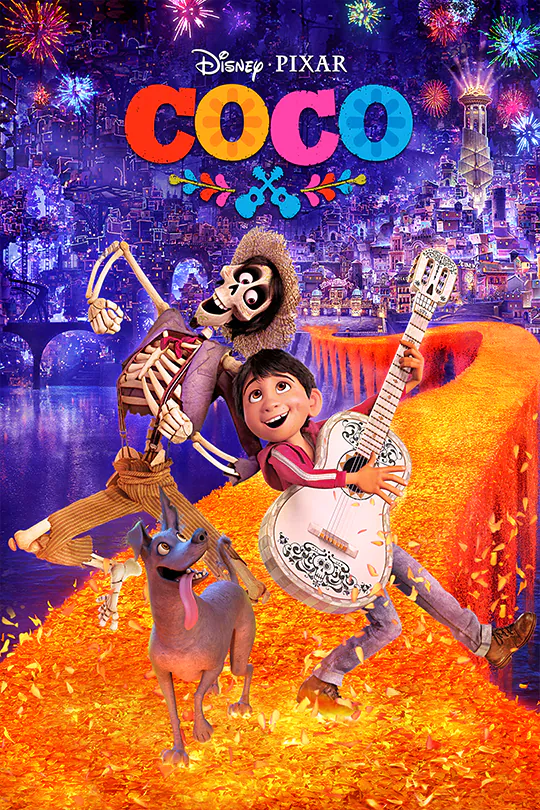Today is Halloween, or as the church has historically recognized, All Hallow’s Eve or All Saints’ Eve — the day of preparation before All Saints’ Day. The church has had a rich history with death and what it means to those in Christ, but it is lost to many of us today. Since death seems nearer to us in these past months of pandemic, I believe we can draw richly upon the witness and testimony of the church that has lived out its faith through the observance of All Saints’ Day.
When I first watched Pixar’s Coco, a film about Día de Muertos ("The Day of the Dead," which is concurrent, perhaps not coincidentally, with All Saints’ Day), I was surprised that the portrayal so accurately captured aspects of our Christian hope associated with death. The observance of this holiday typically takes the form of celebration, rather than mourning — acknowledging that death is not the end and those who left this earth before us have not left us completely. In the story, Miguel Rivera, the main protagonist goes on a journey between the land of the living and of the dead and discovers a richer understanding of himself, his family, and the beautiful and storied inheritance he has as a member of his family. While it is unlikely that Disney/Pixar would put an explicitly religious backing to their films, we in the faith know that it is because of Christ, the living and the dead are not forever separated, and we live out our faith "surrounded by so great a cloud of witnesses" (Hebrews 12).
In the Apostles’ Creed, we affirm this in the line, "I believe in… the communion of saints," which confesses the truth that both the living and the dead share a fellowship in Christ that cannot be broken. Our practice of communion (The Lord’s Supper) touches upon this truth every time we partake; we do not partake alone, but with all the saints present, past, and future. At the table, every time we eat this bread and drink this cup, we do it with all the saints — including those recently departed — proclaiming the death of our Lord until he comes again in glory.
I know for many of us, there are many whose presence is sorely missed. As the holidays approach, the heavy presence of empty chairs in our homes is a weight we’d rather not bear; the idea of observing All Saints’ Day seems too painful in light of our grief and fresh wounds. For some of us we’d rather keep feeling that pain, because we think without that feeling, we’ll lose what we have left of those who died. Sometimes we only dare to take sips of our grief for fear we’d be overcome with despair and spend all our grief at once and then forget. In Pixar’s Coco, Hector, a character from the world of the dead, explains the conflict to be resolved when we says, "If there’s no one left in the living world to remember you, you disappear from this world. But you can change that!"
But the gospel that proclaims the communion of the saints gives us a better promise and hope than Hector’s. The lives of those we have loved do not exist based on our keeping of them in memory; surely there may come a day when we will adjust to our grief and "move on" in some form or another. The gospel gives us confidence to mourn and grieve deeply because it is Christ who remembers our names and knows each of our souls better than we know ourselves. Because of Christ, we can mourn deeply and fully, not worrying if we will drown ourselves in our grief or expend all our sadness at once because we are completely sustained by the grace of God.
I invite all of you to observe All Saints’ Day. Not to focus primarily on our friends and family who have passed, but to turn that longing-for-their-fellowship to worship of our loving and gracious Savior who sustains our communion. In both the Apostles’ and the Nicene Creed, we affirm the resurrection of the dead/body and life — full and vibrant life — in the world to come. Our Savior and fellow saints cheer us on in faith. "Since we are surrounded by so great a cloud of witnesses, let us also lay aside every weight, and sin which clings so closely, and let us run with endurance the race that is set before us, looking to Jesus, the founder and perfecter of our faith."

